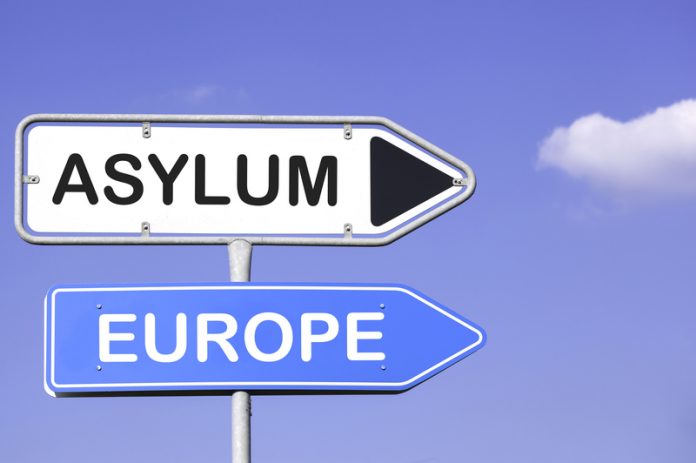Dr Gideon Bolt, Utrecht University, discusses the need to increase support for a generous asylum policy in Europe before the refugee crisis
In a previous contribution to this journal, I analysed the support for a generous asylum policy in European countries (Bolt, 2017). On average, 47.5% of the people in the countries that are included in the European Social Survey (ESS) agreed that governments should be generous when judging applications for refugee status, while 26.0% disagreed. These numbers are based on round seven of the ESS which took place in 2014, prior to the surge of refugees in 2015 and 2016 (Bansak et al., 2016). In this analysis, I will evaluate how the opinions about asylum policy have changed between 2014 and 2016.

(Countries ranked from least support to most support)
Sources: ESS Round 8 (2016). Data file edition 1.0. NSD – Norwegian Centre for Research Data, Norway – Data Archive and distributor of ESS data for ESS ERIC. ESS Round
7 (2014). Data file edition 2.1. NSD – Norwegian Centre for Research Data, Norway – Data Archive and distributor of ESS data for ESS ERIC.
Declining support
Out of the 18 countries in round 8 of the ESS survey (2016), there is in the Czech Republic least support for a generous judgement of asylum applications (table 1). Only 11.8% of the Czech population agrees with the statement while 69.4 disagrees. The difference in these two percentages is used to order the countries by support for a generous judgement (ranging from least to most support).
Most support can be found in Ireland and Northern European countries (Iceland, Norway, Sweden). Three out of the top four countries with least support are Eastern European countries. Out of the Western European countries, there is least support for a generous judgement in the Netherlands (number three on the list).
The last column of table 1 shows the trend in support between 2014 (round 7 of ESS) and 2016. A positive figure indicates a trend towards more support, a negative figure a trend towards less support. For two countries (Iceland and Russian Federation) there are no data available for 2014.
In three countries (United Kingdom, Ireland and Switzerland) there is a (minor) trend towards more support for a generous judgement of asylum applications, while 13 countries witness a negative trend. Support has shrunk most drastically in the Netherlands. Also, in Austria, Germany and the four post-socialist countries in the sample (Czech Republic, Estonia, Slovenia, Poland) there is a substantial drop in the support for a generous judgement.
The link with the rise in asylum applications
The overall negative trend is undoubtedly related to the rise in the number of asylum applications in 2015 and 2016. That does not mean that the trend is most negative in countries that receive most asylum applicants. The correlation between the trend variable and the relative number of asylum applicants (the number of applicants per 1000 inhabitants) is negligible (-0.05) and there is even a small positive correlation (+0.16) between support for generosity and the number of applicants (table 2). Czech Republic, Estonia, Russia and Israel combine a low support for a generous judgement of asylum applications with a very limited inflow of refugees.
Also, the Netherlands has a limited inflow compared to countries like Austria, Sweden and Germany. Although there is also a negative trend in the latter countries, there is substantially more support for a generous judgement of asylum applications than in the Netherlands.
There is hardly any association between the percentage of foreign-born and the generosity variable (table 2, column 2). A higher percentage of immigrants does not lead to a higher or lower support for generosity in the judgement of asylum applications.

At the same time, there is a strong positive association between the proportion of foreign-born residents in a country and the trend variable (+0.53). That means that the support for a generous judgement of asylum applications has dropped less dramatically in countries with a high percentage of immigrants. This may be in line with the contact hypothesis: people who live amongst members of minority ethnic groups are more likely to have a welcoming attitude towards outgroup members. Further research is needed to dig deeper into the mechanism that may explain this statistical association (Bolt & Wetsteijn, 2018).
References
Bansak, K., Hainmueller, J., & Hangartner, D. (2016), How Economic, Humanitarian, and Religious Concerns Shape European Attitudes toward Asylum Seekers. Science, 354(6309), 217-222.
Bolt, G. (2017) Diversity in the neighbourhood drives support for a generous asylum policy Open Access Government (November), pp. 340-341
Bolt, G., & Wetsteijn, E. (2018). What drives the public opinion on asylum policy in the Netherlands?. Tijdschrift voor economische en sociale geografie, 109(4), 513-524.
Please note: this is a commercial profile
Dr Gideon Bolt
Department of Human Geography and Planning
Faculty of Geosciences
Utrecht University
Tel: +31 30 253 1404











